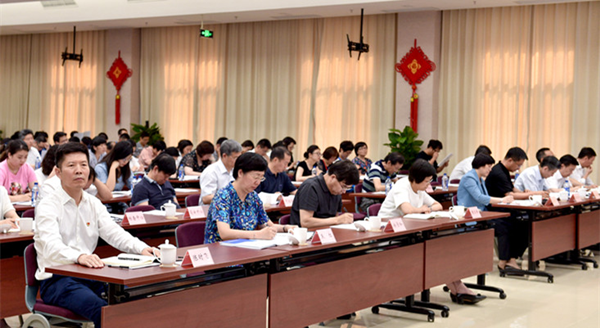NMPA carries out training on vaccine supervision and construction of quality management systems
The National Medical Products Administration (NMPA) organized training on vaccine supervision and quality management system building on July 1.
It invited experts to explain requirements of the national regulatory authority (NRA) assessment of the World Health Organization (WHO) for vaccines as well as the quality control standards. More than 200 people from NMPA's departments and its affiliated institutes participated in the training.

The training introduced the basic requirements of the NRA by WHO for vaccines, and explained WHO's new global benchmark assessment tool. It comprehensively explained the assessment requirements of nine sectors including a vaccine national regulatory system, vaccine marketing approval and lot release.
The training also detailed the requirements of the ISO9000 series of standards in quality, quality management, quality management systems, relations among all parties regarding quality management systems, and quality management requirements for vaccine regulation in the WHO assessment tool.
In recent years, China's regulatory system of medicine products has kept improving. It passed the NAR assessment by WHO in 2011 and 2014, providing regulatory support for Chinese vaccines to enter the world market. In March 2021, China will welcome a new round of NAR assessment by WHO for vaccines. This assessment will use WHO's latest global benchmark assessment tools to put forward higher requirements for the building of vaccine quality management systems.
The NMPA will take the NAR assessment for vaccines as an opportunity to build a comprehensive high-quality management system for drug supervision, conscientiously implement the general requirements of education in the area, "keep the original aspiration, shoulder the responsibility, find the disparity, and ensure the implement", and constantly improve the national regulatory system for medicine products. In the meantime, the NMPA will also implement the "Four most stringent requirements" (the most rigorous standards, the strictest regulations, the most severe punishments and the most serious accountability) for drug safety and promote overall improvement in regulatory capacity.
